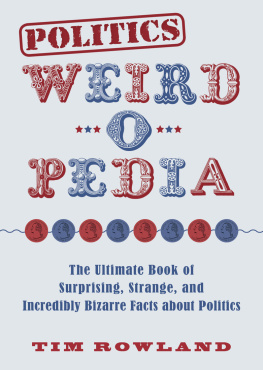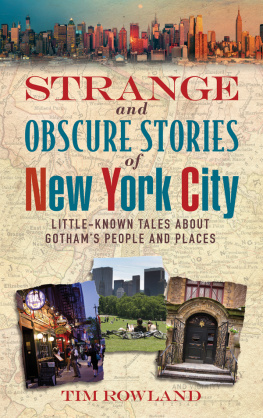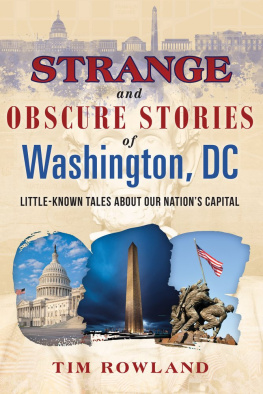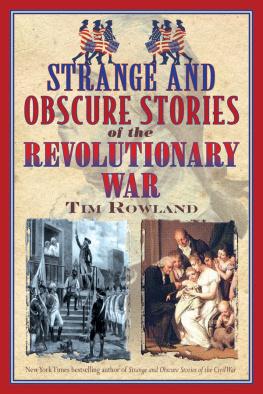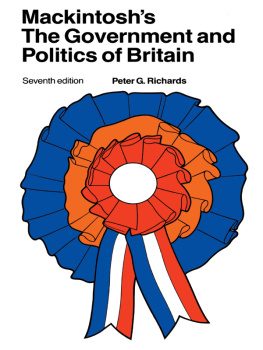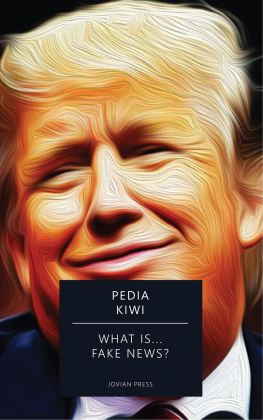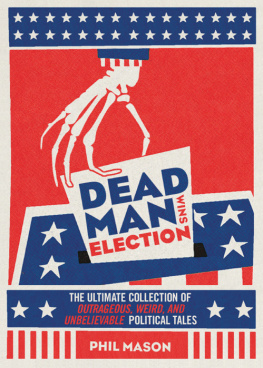

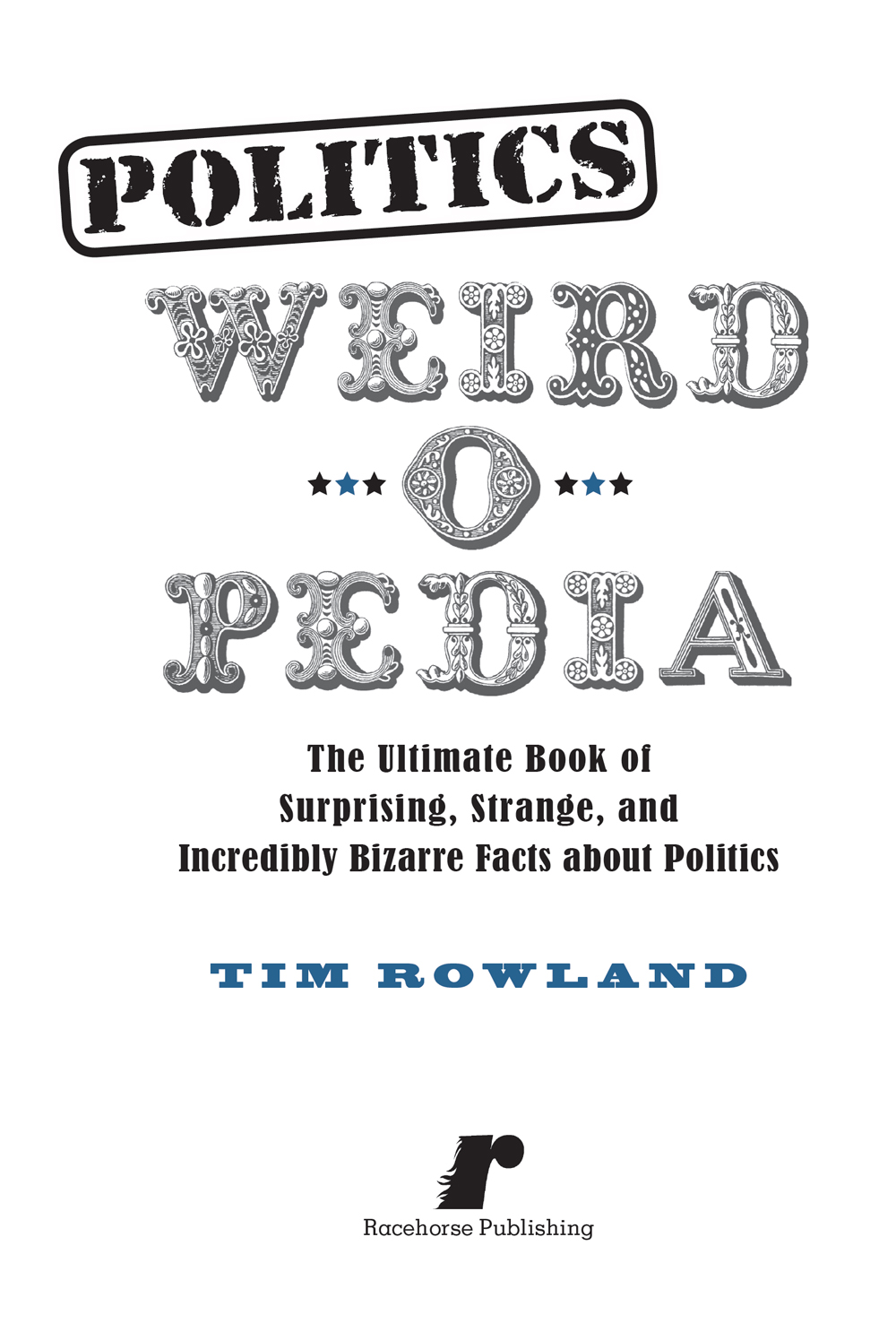
Copyright 2019 by Tim Rowland
All rights reserved. No part of this book may be reproduced in any manner without the express written consent of the publisher, except in the case of brief excerpts in critical reviews or articles. All inquiries should be addressed to Skyhorse Publishing, 307 West 36th Street, 11th Floor, New York, NY 10018.
Racehorse Publishing books may be purchased in bulk at special discounts for sales promotion, corporate gifts, fund-raising, or educational purposes. Special editions can also be created to specifications. For details, contact the Special Sales Department, Skyhorse Publishing, 307 West 36th Street, 11th Floor, New York, NY 10018 or .
Racehorse Publishing is a pending trademark of Skyhorse Publishing, Inc., a Delaware corporation.
Visit our website at www.skyhorsepublishing.com.
10 9 8 7 6 5 4 3 2 1
Library of Congress Cataloging-in-Publication Data is available on file.
Cover design by Daniel Brount
Cover illustrations by iStockphoto
Print ISBN: 978-1-63158-388-9
Ebook ISBN: 978-1-63158-390-2
Printed in China
To my wife Beth, among whose many talents are organizational and research skills, without which this book would not have been possible.
contents
INTRODUCTION
W hen the British government ruled India, it became concerned with the number of cobras in the land (the venomous snake being something of a rarity in the British Isles), so the politicians did what any politician would do: set a bounty on the reptile, paying citizens of Delhi for every dead snake they produced. The snake population plunged until residents figured out that they could earn a steady income by breeding cobras, which they duly killed and turned over to the authorities in exchange for cash. When the British government learned of this, it did what any government would do: stopped paying for dead snakes. This left the cobra breeders with a surplus of reptiles, which they simply released back into the streets, leaving the city with far more snakes than it had prior to government intervention. This example has become famous as the Cobra Effectthe tendency of those in power to make bad situations much worse. Politics, said the publisher Ernest Benn, is the art of looking for trouble, finding it whether it exists or not, diagnosing it incorrectly, and applying the wrong remedy. As such, politics and government are weird almost by definition.
This book, a desultory collection of curious political anecdotes from around the world, is primarily intended to be fun. Obviously, it is by no means a complete listthat would take a collection of volumes that would fill the mightiest library. Nor is there any pattern or attempt to categorize the snippets beyond the chapter headings, in hopes to keep the book lively. It is also hoped that readers, from time to time, will notice parallels to the modern political condition, which is to say that no matter how extreme things might seem today, we have been here before. (Those who believe Donald Trump is one-of-a-kind have perhaps never studied Andrew Jackson.)
A considerable problem, when dealing with oddball items, is separating truth from legend. (No, contrary to several popular websites, it is not illegal in Liverpool, England, for a woman to be topless in publicexcept as a clerk in a tropical fish store.) Although relied upon here from time to time for inspiration, Internet lists should generally be considered suspect, for the simple reason that they are in the business of attracting eyeballs, not of conducting scholarly research. That being said, all of history (not just flashy websites) is rife with misconceptions, often perpetuated by those with political agendas. For example, it was in the interest of those who murdered Ludwig II of Bavaria to assign him the sobriquet of the Mad King, and tell all manner of lurid stories about him as an excuse for their power-grab. Sadly, Ludwigs eccentric behavior has been recast through the ages as insanity, even as his fantastic array of castles and theaters are something of a wonder of todays world.
The truth of the tidbits in this book has generally been verified to the highest degree possible. That isnt to say that something didnt slip through the cracks, or that whats accepted as accurate by historians is always accurate. Someone finding an item herein that seems to be too incredible to be true is certainly encouraged to check it out. In this world of dubious social media sites, thats a good habit to be in no matter what the issue. A selected list of books, newspaper articles, and websites are also included in this bibliography () for those interested in learning more.
Who says history and politics are dull?
Still, the overriding theme in this book is that truth is stranger than fiction, and politics is stranger than truth. A decade ago, the government of Bangkok became frustrated that its police officers were taking minor but unsanctioned privileges, such as showing up late for work or parking in reserved spaces. Politicians came up with the idea that officers who were behaving badly would be forced to wear a colorful plaid armband, which would be a symbol of shame and embarrass the officer into maintaining better manners. But almost immediately the plaid armbands became something of a collectors item and/or fashion statement, and the armbands disappeared as fast as they could be produced. This sent administrators back to the drawing board to design a new armband that would be more likely to cause shame and modify the officers behavior. The result? A pink armband with the Hello Kitty logo.
CHAPTER 1
ON THE CAMPAIGN TRAIL
I n the early years of America, begging people for their votes was considered beneath the dignity of a presidential candidate, whose greatness precluded the dirty work of the campaign. It was like the old saw about banks only lending people who didnt need the money; if you needed to ask someone for his vote, you didnt deserve it.

That, obviously, has changed. And mores the pity. Because in those days, resources didnt flow from the people to the candidate; they flowed from the candidate to the people. To be sure, qualifications mattered, sort of, but many an election was determined by which candidate threw the best party. In other words, we chose our presidents in much the same way college kids choose a fraternity.

George Washington was a great man and he won elections because he was a great man. But it didnt hurt that he distilled enough whiskey to float a frigate, and was not shy about ladling it out of the barrel on election day.
Since the early days of our country, many other things about campaigning have changedsome in ways that are good, some bad, and some just plain weird.
Basil Marceaux, a perennial campaigner for all levels of offices in Tennessee and most recently running in 2018 for governor, hasnt won election, but he has won wide acclaim among the national media for his unconventional views. He denied accusations of being drunk in a campaign video, saying his speech was slurred because he only has three teeth.

Next page
